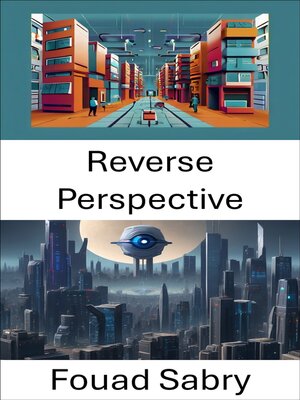Reverse Perspective
ebook ∣ Reimagining Visual Perception in Computer Vision · Computer Vision
By Fouad Sabry

Sign up to save your library
With an OverDrive account, you can save your favorite libraries for at-a-glance information about availability. Find out more about OverDrive accounts.
Find this title in Libby, the library reading app by OverDrive.



Search for a digital library with this title
Title found at these libraries:
| Library Name | Distance |
|---|---|
| Loading... |
What is Reverse Perspective
Reverse perspective, also called inverse perspective, inverted perspective, divergent perspective, or Byzantine perspective, is a form of perspective drawing in which the objects depicted in a scene are placed between the projective point and the viewing plane. Objects farther away from the viewing plane are drawn as larger, and closer objects are drawn as smaller, in contrast to the more conventional linear perspective for which closer objects appear larger. Lines that are parallel in three-dimensional space are drawn as diverging against the horizon, rather than converging as they do in linear perspective. Technically, the vanishing points are placed outside the painting with the illusion that they are "in front of" the painting.
How you will benefit
(I) Insights, and validations about the following topics:
Chapter 1: Reverse perspective
Chapter 2: Necker cube
Chapter 3: Isometric projection
Chapter 4: Perspective (graphical)
Chapter 5: Vanishing point
Chapter 6: Ponzo illusion
Chapter 7: Curvilinear perspective
Chapter 8: Depiction
Chapter 9: Parallel projection
Chapter 10: Accidental viewpoint
(II) Answering the public top questions about reverse perspective.
(III) Real world examples for the usage of reverse perspective in many fields.
Who this book is for
Professionals, undergraduate and graduate students, enthusiasts, hobbyists, and those who want to go beyond basic knowledge or information for any kind of Reverse Perspective.







